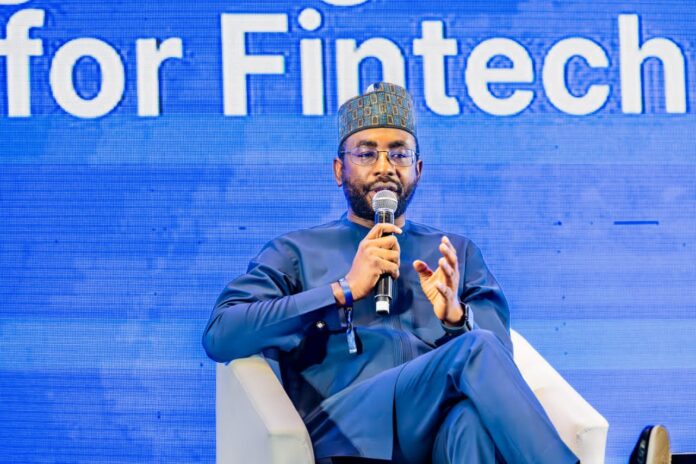The Director General of the National Information Technology Development Agency (NITDA), Kashifu Inuwa CCIE, has called for greater collaboration among stakeholders in the financial technology (FinTech) ecosystem to deepen financial literacy and promote financial inclusion.
Inuwa made this appeal during the 6th annual FirstBank FinTech Summit, held at the Lagos Continental Hotel, Victoria Island, Lagos. Themed “Policy and Infrastructure: Navigating Financial Regulations for FinTech Innovations,” the summit featured key industry leaders discussing strategies for advancing Nigeria’s financial technology sector.
Highlighting the alignment of NITDA’s initiatives with the current administration’s focus on economic reform, industrialization, and digitization, Inuwa emphasized the importance of fostering partnerships to create inclusive financial systems.
“NITDA’s regulatory approach is based on a triple-helix model that actively supports market creation rather than imposing standards,” he said. He noted that the agency’s Regulatory Intelligence Framework prioritizes collaboration with stakeholders to drive innovation, protect consumers, and enhance service delivery.
Inuwa cited the agency’s successful partnership with the Central Bank of Nigeria (CBN) in implementing the cashless policy that gave rise to Nigeria’s FinTech industry. He explained that the initiative prompted banks to upgrade their infrastructure, enabling FinTechs to bridge existing gaps with innovative solutions.
The DG also revealed ongoing collaborations with the Federal Inland Revenue Service (FIRS) to develop guidelines for electronic invoicing, which will open new opportunities for FinTech players. “Unified regulations and participatory policy-making are crucial to ensuring effective implementation,” he added.
Inuwa underscored the need to bridge the digital divide to foster financial inclusion. He highlighted the launch of the National Digital Literacy Framework, which integrates digital skills into formal education. The framework has been extended through collaborations with the Ministry of Education and the National Youth Service Corps (NYSC), with over 17,000 youth corps members trained annually. Additionally, the initiative targets artisans, market women, and senior citizens in the informal sector to enhance digital literacy.
Addressing Nigeria’s reliance on foreign cloud services, Inuwa stressed the importance of building local cloud infrastructure to ensure data sovereignty and bolster national security. He mentioned ongoing collaborations with hyperscale providers and local data centers to develop cloud capabilities within the country.
NITDA is also working with stakeholders to enhance Nigeria’s cybersecurity architecture, an essential component for fostering trust in digital platforms and achieving financial inclusion.
Inuwa outlined various NITDA interventions aimed at empowering underserved communities through digital capacity-building and skills acquisition. He urged FinTech companies to integrate financial literacy programs into these initiatives to drive deeper financial inclusion.
“Nigeria has the infrastructure, and with the right collaborations and inclusive policies, we can significantly bridge both the digital and financial divides,” Inuwa concluded.
Other panelists at the summit included Premier Oiwoh, MD/CEO of NIBSS; Bashir Are, CEO of the Lagos Lotteries & Gaming Authority; and Adewale Salami, Chief Information Officer of FirstBank of Nigeria, who shared their insights on navigating financial regulations and driving innovation in the FinTech industry.




